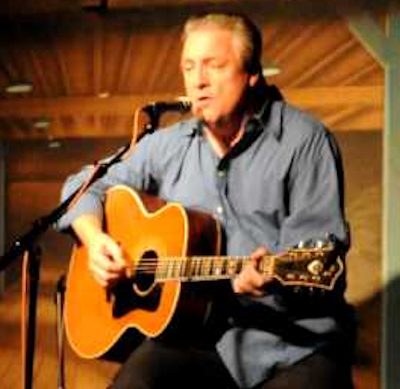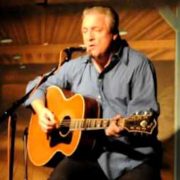SO WHAT DO YOU DO?
So What Do You Do?
 Intermission. Time to stretch our legs a little bit, get some coffee or tea, and chat.
Intermission. Time to stretch our legs a little bit, get some coffee or tea, and chat.
I’ve made great friends at many live music shows, and often intermission is where the friendship began to blossom. These friendships have traveled to Facebook or sometimes continued down the street for a bite after the show. On occasion I’ve seen a familiar face from an entirely different part of my life and it has taken a minute to register, particularly when the last time I saw him or her we were both wearing business suits.
FolkWorks has graciously given me the opportunity to talk about music and life with a little bit of law thrown in. People ask me what I do, and when I say nurse/attorney/bioethicist it either intrigues or confuses them. That “what do you do” question is an interesting one and it seems to be a staple of social discourse. It can also be answered in many ways. In the early days of anonymous online chatting, I tried a little experiment. Sometimes I would tell people that I was a nurse, at other times I would tell them that I was an attorney. I could sense different reactions depending upon how I presented myself.
I then tried other descriptions. I recall telling one person that I co-produced and hosted a monthly radio feature showcasing LGBTQ musicians that aired on over 200 stations around the world. My favorite response was “Wow. You get paid for that?” Of course, those of you who are part of the folk/independent music community know the answer to that question.
Music, of course, is a great equalizer. It speaks to all of us, no matter “what we do.” From stately hymns to aggressive punk rock there is something for everyone. However, folk music will always have a special place in my heart as, during my “formative years,” it was the voice of those who questioned the status quo and hoped to make the world a better and more peaceful place. I treasure having had the opportunity to see Pete Seeger, Arlo Guthrie, and Joan Baez, just to name a few of the better known folk artists of the time, perform live. Competing with the din of love songs on top 40 radio (e.g. “93 KHJ”) was a collective message asking us to care for others, stand up for our beliefs and seek justice.
With my pawn shop acoustic guitar, I joined many kindred spirits. We sang together just for the joy of making music. Whatever “the music business” may have been then it was, to us, something completely foreign. Our dreams were loftier – more about who we would become than how we would make our living.
Today the tradition continues but manifests itself in different forms. Terrestrial AM radio is not the only option and no longer must musicians seek the “holy grail” of a record contract in order to be heard outside of their own locale. The technology to capture music in digital form is readily available to the independent musician, who also has the means to distribute it via electronic communication.
On the other hand, it is far too easy to copy and distribute music without the creators and performers receiving any compensation for their art. Television shows, often scorned in the past for their banality, have become more creative and interesting; that and urban traffic keep many people home in the evening rather than venturing out to see a live show.
If you are reading this, you are part of the community that keeps folk alive. You attend local shows and purchase CDs or download MP3s. You add some “green” to the open guitar case. You host house concerts. You go to music festivals and buy CDs or flash drives directly from the artist because you know that the money goes directly to the artist; sometimes if you are able, you may even say “keep the change.” You spread the word and tell friends and family about the new music you have discovered. You keep folk and other independent music alive. It just “what you do.”
Chris Wilson was the creator and co-producer of “Audiofile,” an award winning radio feature which ran internationally for 14 years on public and community radio. She is currently best known in the local folk community as manager for Irish musician Ken O’Malley. She is also an RN/Attorney/Bioethicist and publishes a blog addressing health care issues and seniors. You can reach her at chris@kenomalley.com.













